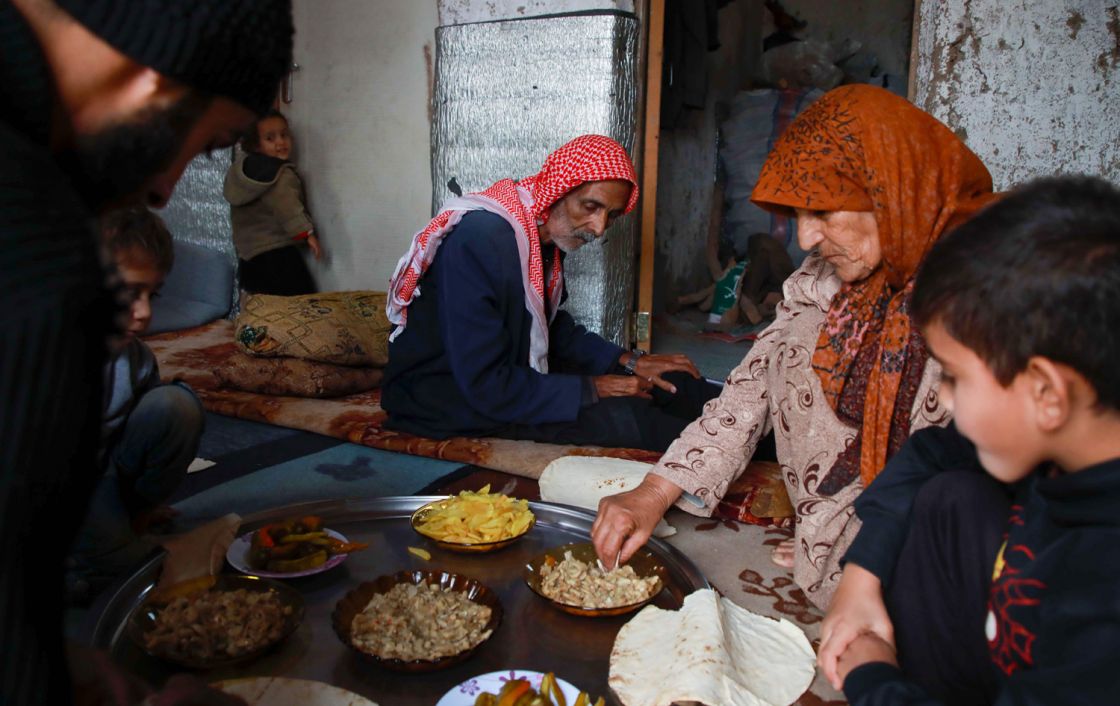- Editorials
- Posted
Kassioun Editorial 1108: What Will Happen to Wages with the Changes in the Exchange Rate?
Syria is witnessing the start of a new wave of depreciation of the exchange rate of the Syrian pound. It is not yet clear how far it will go and how long it will last. In parallel, there is a lot of talk about a possible wage increase.
Before diving into an in-depth discussion, it must be recalled that every deterioration in the exchange rate, and the accompanying deterioration in the purchasing power of the Syrian pound and rise in inflation, comes with further increase in the plunderers’ profits, which is deducting an additional share of the production taken from the pockets of the plundered and put into the pockets of plunderers.
This reminder is necessary, because some try to depict the issue as if all Syrians are on equal footing in that and are all affected, and this is not true at all. There are those who profit and accumulate wealth from this trend, even if they are not the only ones causing it. Nevertheless, they are mainly behind it and contribute to perpetuating it.
Among the most important reasons for the continued depreciation in the exchange rate of the Syrian pound are the following:
First: The delay in the political solution, which means the continuation and deepening of all the factors of the crisis, with their external and internal dimensions.
Second: The decline in material industrial and agricultural production, among the causes of which are destruction of the infrastructure throughout the country.
Third: The obstruction of exchange of goods and money among the Syrian regions due to the de facto division, and because of those benefiting from it and from the “cross lines” between these regions.
Fourth: The financial policies of the government and the Central Bank, including policies for determining the exchange rates and the methods of financing imports, primarily printing currency without a balance.
Fifth: Western sanctions and blockade, complemented and reinforced by continuing to peg to the dollar.
Sixth: Continuing forward on the path of lifting all remaining subsidies, which not only deepens hunger and poverty, but also deepens the crisis of material production in all its forms.
Seventh: The continuation and rise in levels of plundering in its old and new forms, including the so-called “checkpoints” that exist in all Syrian regions, which play an important role in severing the Syrian market and in raising the costs of any goods during their transport, and consequently their price, i.e., reducing the possibilities of consuming them on the one hand and the possibilities of reproducing them on the other.
It has become somewhat usual for waves of depreciation of the Syrian pound exchange rate to be accompanied by a lot of talk about increasing wages. On many occasions, this had gone nowhere, and a few times, it led to increases that are almost symbolic compared to price increases. More dangerously, these are increases from inflation sources, i.e., by simply printing money without a balance, which leads to a quick loss of the purchasing power, where the purchasing power of wages a few weeks or months after the increase is actually less than their purchasing power before the increase.
In any case, there is talk about what is the minimum wage that should be adopted now, and there are many proposals, the least of which is about 850,000 Syrian pounds per month as the minimum wage, while semi-official sources point to increases much lower than that.
According to the Kassioun quarterly index and Editorial 1106, the minimum wage that achieves the minimum standard of living for a family of five people and two breadwinners is 1.25 million Syrian pounds. What should be raised is not only the minimum wage, but the entire wage scale, starting with the minimum wage and based thereon.
Achieving wage increases of this amount is possible and necessary, and it is only possible by financing the increases from real, and not inflationary, sources. The real sources have two major and clear choices: the first is to directly take possession of the accumulated plundered wealth, whether in banks or stashed in cellars; and the second is to revive real production, not by preserving subsidies or what remains of them, but rather by reinforcing and increasing them to higher levels than any past levels.
None of the required radical measures will be taken by the extremist and plundering groups. This requires the crystallization of a true patriotic will, which must be resolved through a political solution through the full implementation of UNSC Resolution 2254. Raising the minimum wage to the level of the minimum standard of living, a radical monetary reform is necessary within a comprehensive financial reform package, which is one of the first steps towards stability.


